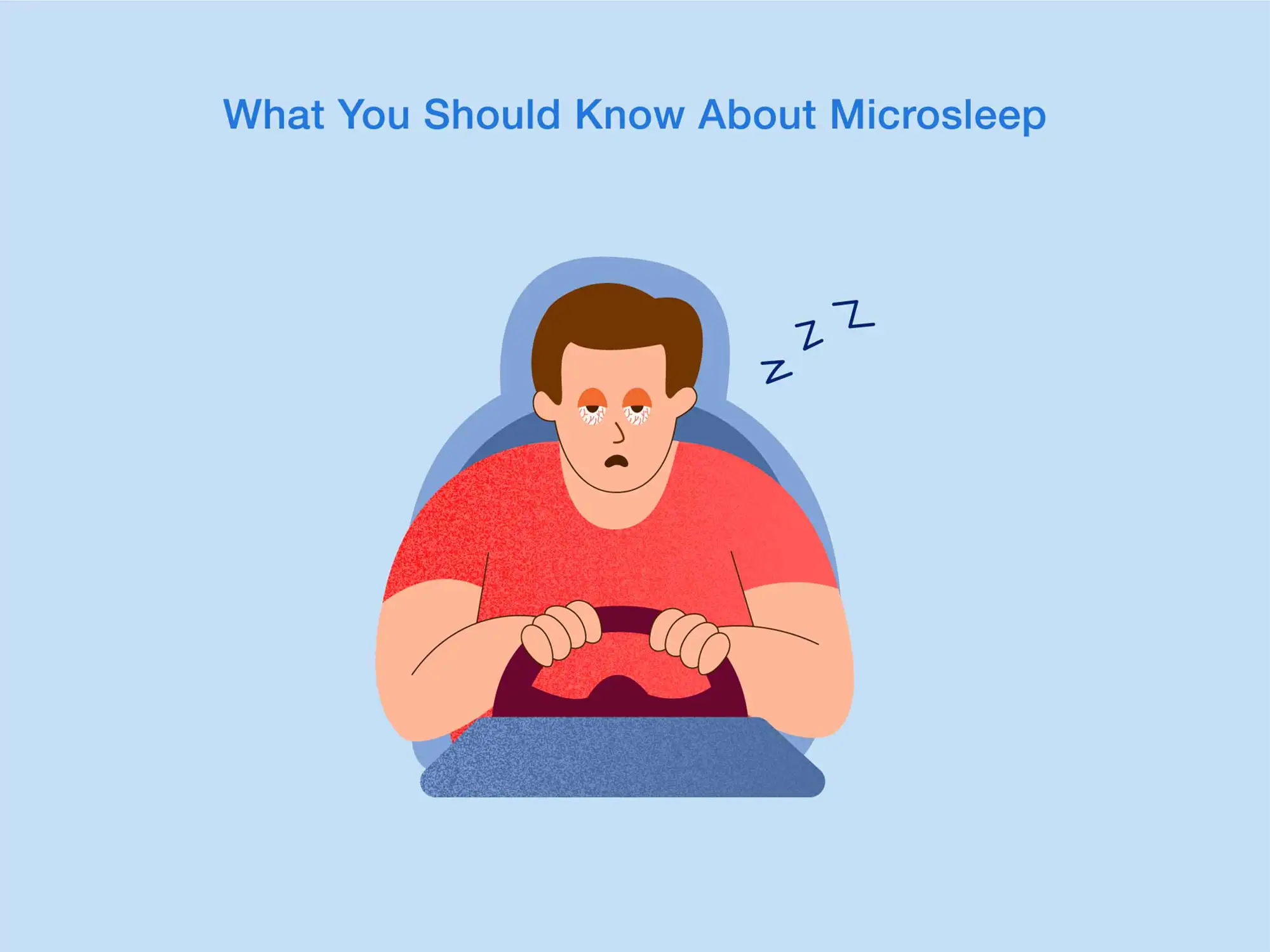Sleep Health
Published March 3, 2023
8 minWhat You Should Know About Microsleep
Has it ever happened to you that you are doing a mundane activity, like watching television after work and you jerk awake a couple of times? Or you were probably driving and a loud honk breaks your st

Table of contents
What Is Microsleep?Why Do Microsleep Episodes Happen? Microsleep and Sleep Deprivation Prevention and Treatment of MicrosleepPrevention and Treatment of MicrosleepWhen to Talk to Your Doctor Frequently Asked Questions
Has it ever happened to you that you are doing a mundane activity, like watching television after work and you jerk awake a couple of times? Or you were probably driving and a loud honk breaks your stupor? This is known as microsleep. But what is microsleep ? Are there any dangers associated with this condition? Well, we bring you all the information right here. Just read ahead to know everything about micro naps and microsleep meaning.
Not sure which mattress fits you best? Find out now.
What Is Microsleep?
You must have come across stories where drivers fall asleep behind the wheel. It can be only for a fraction of a second when they unknowingly drift into a state of sleep, which can be immensely dangerous. This is micro sleep. Microsleep definition: Basically, microsleep is when a person unknowingly experiences small bouts of sleep lasting less than 30 seconds. If you suffer from microsleep disorder, it can occur anytime, even when driving or in a meeting. Some of the most common reasons why you may experience micro naps are;- If you are suffering from a chronic sleep disorder, such as narcolepsy or insomnia
- If you have obstructive sleep apnea
Why Do Microsleep Episodes Happen?
Microsleep is a condition that occurs without any warning. So, let’s take a look at the common micro sleep causes.Sleepiness
One of the main triggers of a microsleep episode is sleep deprivation. When you don’t get enough sleep at night, you may experience extreme drowsiness. Therefore, looking for any sleep deprivation symptoms, such as microsleep, is essential. People who have a consistent bedtime sleep routine and go through sleeplessness are more prone to microsleep episodes.Shift Work
When you work rotational shifts, you may not get the required daily sleep. Your new sleep patterns may confuse your circadian rhythm and can make it difficult for you to fall asleep. In fact, as per research, people who work evening and night shifts are more prone to mistakes at work and even accidents. It was also seen in another study that night shifts can slower the reaction time.Sleep Disorders and Medications
Certain drugs, such as sleep medication can induce drowsiness once you wake up and can put you at risk of microsleep. Also, microsleep can be a symptom of certain sleep disorders, such as insomnia, sleep apnea, and narcolepsy.Boredom and Normal Circadian Slumps
When performing boring tasks that take a repetitive routine can lead to drowsiness and even microsleep. These tasks include long drives, riding on a plane or train, and even stationary work. It can occur even after a good night’s rest because circadian rhythm may dip down at certain times during the day, such as in the afternoon.Microsleep and Sleep Deprivation
As aforementioned, one of the main reasons for microsleep is sleep deprivation. According to one study, it was seen that people who were getting less than 90 minutes of sleep each night were more likely to experience microsleep episodes. And people who regularly work in shifts are more at risk. It was also seen that when you sleep for less than four hours, you may experience an episode of microsleep.Prevention and Treatment of Microsleep
As you already know, sleep deprivation is the main culprit of microsleep. Therefore, you must sleep for at least 7-8 hours every night. You must also ensure that you take extra precautions when you are driving between states. Just a 30-minute power nap can be helpful when you feel a sense of drowsiness takes over. Or you can rely on caffeine to enhance alertness. However, don’t overdo it.You can also do a few things to ensure you enjoy complete rest at night. They are;- Don’t consume caffeine in the evening as it can interfere with your sleep by blocking the sleep receptors.
- Create a comfortable sleep environment with an ideal room temperature, which is between 60 to 67 degrees Fahrenheit. You can also close the blinds and keep the room dark as too much light can interfere with your circadian rhythm .
- Avoid other stimulants before bed.











